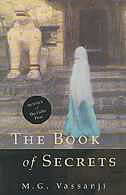 The Pool is a networked collaboration environment that presents a visualization of proposed projects distributed by approval and recognition. The idea is that people can propose ideas, approaches to ideas, release implementations of the approaches and then reviews. I guess that as ideas mature they will migrate from the lower left to upper rights. It only works on selected browsers.
The Pool is a networked collaboration environment that presents a visualization of proposed projects distributed by approval and recognition. The idea is that people can propose ideas, approaches to ideas, release implementations of the approaches and then reviews. I guess that as ideas mature they will migrate from the lower left to upper rights. It only works on selected browsers.
This online environment is an experiment in sharing art, text, and code–not just sharing digital files themselves, but sharing the process of making them. In place of the single-artist, single-artwork paradigm favored by the overwhelming majority of studio art programs and collection management systems, The Pool stimulates and documents collaboration in a variety of forms, including multi-author, asynchronous, and cross-medium projects. (From “learn more” -> “purpose”)
 I just finished The Book of Secrets by
I just finished The Book of Secrets by